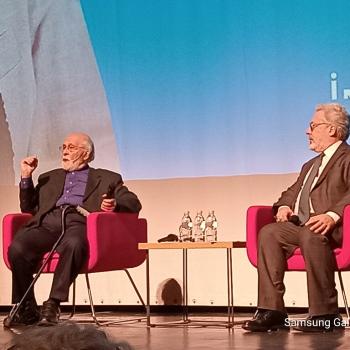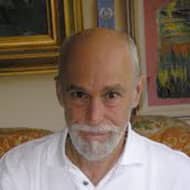As an analog to gender as a single topic, consider homelessness. For starters, as with gender, the word needs tweaking. Novelist Charles Dickens was accurate in coining another term. He'd saunter all over London and was familiar with those whose homes are the streets—"the houseless." As I practice walking meditation in my neighborhood park, I'm aware I'm in the living room of averted faces camped out there since the night before.
And houselessness isn't a tight, exclusive category. Rather, under its semantic umbrella we can fit veterans of war and other violence ... laid-off householders … addicts and sociopaths … bold, young backpackers and desperate runaways.
Just as there's no one-size-fits-all solution for the houseless population among us, so too treating gender as a fixed, single issue diminishes its true amplitude and vitality, which subtly interweaves themes of race, class, age, cultural heritage, education, and so on. No category is Members Only. And, by now, all bets are off.
May we be penetrative in our understanding and inclusive in our scope. This resonates with the Buddhist healing practice of being able to pinpoint a particular state, such as pain, in all its fluctuating, impermanent nuance and texture—and simultaneously be capable of situating an object of attention within a larger context, such as waves within an ocean.
A middle way exists between the provisional divisions of identity politics, and the boundlessness of the supreme identity of selflessness. It's a path upon which we discover ourselves creating it as we go.
For me, recognizing the nonseparation between Self and Other brings up constricting views and unpleasant memories, which are also challenging opportunities for letting go of preconceptions. It's not been for me to unpack my own baggage of male privilege, but neither has white privilege, middle-class privilege, college-educated privilege, and so on. The more intimate I grow with each aspect of power, the more interconnected they appear. Thus, undoing one knot can unloosen others as well. And it enables me to know greater compassion for myself, seeing how others face similar conundrums, differently. As my own obstacles become more manageable, I'm more available to be of service to others.
Like self, or any concept, gender is a construct. Gender is a composite of other causes and conditions. And, still, we can never escape gender. The gender of Mother Earth, for instance, is a universal constant. One of the wonders of Mother Earth is her inclusivity. May we continue to learn her ability to absorb and transform all kinds of organic shit and use it positively, as for mulch for new flowers. If metta is caring like a mother for her only child, sometimes I feel like that only child, and feel that mother love.
To end with a story. One day, I opened the door to my sangha, and a woman appeared on a walker. She'd just recently survived a stroke. She didn't sit out our walking meditation, and, in a few short months, miraculously no longer needed the walker. She said walking meditation did it. Not to diminish mindfulness, I suspect its energy empowered her to contact her own, incredible curative powers. And what are they? Is it the feminine power of generation and regeneration? Is it her Filipino roots? I don't know. We sit in a circle, and I continue to consider her my teacher too.





